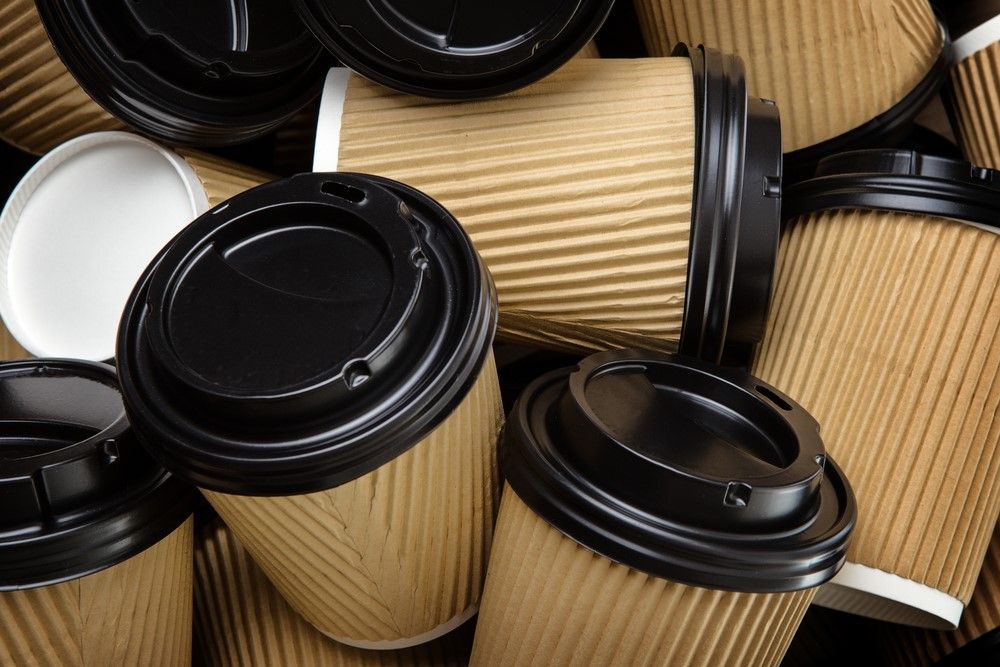When you’re next offered a coffee at an exhibition or conference before you dispose of your cup take a closer look. If it’s made from paper, which it probably is, it’s likely to be printed with lots of reassuring logos and statements to let you know that it’s made from recycled materials and is itself recyclable.
We are at crisis point with disposable cups. Despite the warm promises, fewer than 1% of paper beverage cups are recycled, because there are only three facilities in the whole UK that can strip the plastic lining from the cups before turning them back to paper pulp.
Maybe your cup boasts that it’s compostable. That’s definitely a plus, as the plastic lining of a traditional paper cup takes centuries to break down, but even the most compostable cups on the planet still take years to fully decompose.
Literally, millions of paper/plastic cups and lids are discarded into general waste and end up in landfill or incinerators every year. The event industry has made great strides in sustainability in the last couple of decades, but the problem of event beverage cups is proving a tough nut to crack.
All solutions so far rely on event audiences either diligently sorting their waste so as to place all paper cups in specific collection bins, or bringing their own reusable plastic mugs. Plastic mugs are a great replacement – although they’re heavier and cost more to produce, they can be reused hundreds of times, and then recycled hundreds of times.
But there are some tricky problems with switching to plastic cups from an event beverage perspective (rather than say at a music festival). In our business of deploying coffee bars to conferences and exhibition stands, our customers are keen to ensure their branding is applied to the paper cups. Were we to extend this to branded plastic cups it would mean a significant price increase to cover the manufacturing and printing costs – and then we would need to ensure all the cups are collected for reuse and recycling after every event. Every plastic cup thrown into general waste would not only contribute to yet more plastic pollution but would represent a fixed loss for us.
Reusable cups have started to appear at live events and music festivals, and they work much better in this context, but at exhibitions and conferences, where many different suppliers and brands are giving out branded beverages as part of their hospitality, offering reusable plastic cups means accepting an economic penalty and having to choose how much to pass on to the client.
The best solution, to my mind, is technological. Currently, there is a race to develop the completely compostable paper coffee cup. The most promising development is a vegetable-based impermeable liner for cardboard water bottles that decompose within weeks – but this can’t hold hot liquids yet. The company that firsts develop the fully compostable coffee cup able to be produced in existing mass production facilities, will make a killing.


